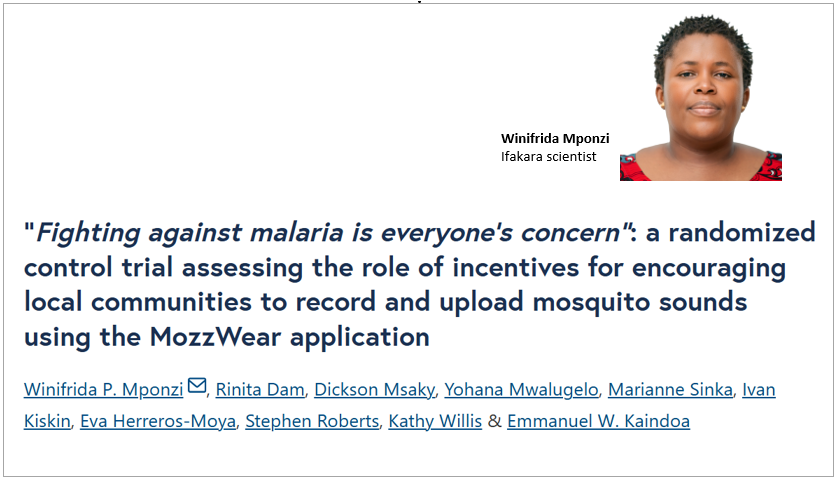
CITIZEN SCIENCE: In Tanzania, it is motivation, not money, that drives the fight against malaria

“Fighting malaria is everyone’s concern.” That’s the message from community members in rural south-eastern Tanzania, where a recent study found motivation—not money—drives action against mosquitoes.
The study shows that ordinary citizens can play a powerful role in mosquito surveillance by using simple smartphone technology, proving that the fight against malaria is a shared responsibility — and that people’s motivation may depend on community spirit rather than financial rewards.
Testing incentives in mosquito surveillance
Published on Malaria Journal and led by scientists from Ifakara Health Institute and partners from the UK, the study tested whether small airtime incentives encouraged villagers to record and upload mosquito flight sounds using the MozzWear mobile application.
The app, paired with acoustic sensors, detects mosquitoes based on their wingbeat sounds, offering a low-cost, scalable alternative to traditional mosquito surveillance methods.
Over a four-month period between April and July 2022, households in four villages in Ulanga District, south-eastern Tanzania, were asked to record mosquito activity weekly. Participants were divided into two groups—one received mobile airtime rewards for each upload, while the other did not.
Surprising findings on motivation
Contrary to expectations, the results showed that incentives did not necessarily improve participation. In fact, some participants who received no rewards recorded and uploaded data more consistently than those who received rewards.
“Fighting malaria is everyone’s concern — this was a common message from community members,” noted the study authors. “Our study shows that people are motivated not just by money, but by a strong sense of responsibility to protect their families and communities.”
Motivation levels varied by demographic
The researchers also observed that motivation levels varied by demographic groups. Participants with stable incomes or businesses were more likely to contribute without incentives, while others valued the airtime support as a helpful bonus.
This study also revealed that younger citizens were more willing to participate even without incentives, likely because they are generally more interested in exploring and using technology. Providing them with smartphones may have further encouraged their engagement and improved performance.
Despite challenges such as limited phone charging and internet access, most participants expressed enthusiasm for continuing their involvement. Many saw their role as a direct contribution to the national fight against malaria.
Citizen science as a tool against malaria
The findings underscore the potential of citizen science in strengthening disease surveillance, especially in low-resource settings where traditional monitoring is costly and limited.
The researchers recommend that future malaria control programs should not rely solely on financial incentives but also focus on building community responsibility and collective ownership of malaria prevention efforts.
Ifakara’s Winifrida Mponzi led the study
The study was led by Winifrida Mponzi from Ifakara Health Institute, with co-authors Dickson Msaky, Yohana Mwalugelo, and Emmanuel Kaindoa.
UK-based contributors included Rinita Dam (University of Warwick), and Marianne Sinka, Eva Herreros-Moya, Kathy Willis, Ivan Kiskin, and Stephen Roberts from the University of Oxford.
Read the publication here.
